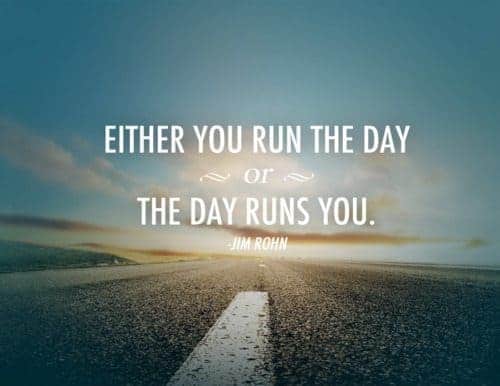3 Inspirational Life Lessons I Learned From Being A Teacher
Life lessons learned from kids can be an invaluable source of wisdom for adults.
When you work with children, you learn more than you teach…
I’ve played many roles, from an English teacher, Physical Education teacher, Dean of Students, Basketball coach, Director of Student Life, and even self-defense instructor.
Working with kids from various angles has allowed me great insight into how we develop from children to teenagers, young adults, and adults.
I have been blessed to learn many life lessons and gain invaluable wisdom that I try to apply daily.
Today I will focus on 3 key ideas that could change your life and have certainly changed mine.
Check out these Detachment Quotes from the movie about a substitute teacher.
Life Lesson #1
It is never too late or too early to re-write your autobiography.
Any English teacher, at any grade level, has the standard project assigned to their students of writing their own autobiography.
This assignment is phenomenal!
Not only do students work on their reading and writing skills, but as an educator, we learn a lot about who our student is, was, and aspires to be.
I’ve read hundreds of autobiographical stories, poems, and narratives.
I’ve enjoyed them all for different reasons.
One reason is the ever-prevailing theme of overcoming obstacles.
Every story I’ve ever read by a student centered on overcoming obstacles in their family, environment, social, and/or emotional life.
What is different in each story is what that event meant to the child.
The meaning of such obstacles is the point where young people separate themselves from the pack.
Already, some young people have a clearly articulated tale of victory.
Some young people might not know what to make of these events and just describe them plainly.
While some young people, unfortunately, see these obstacles as their entire life and not as an event in their life.
A critical distinction.
As we grow older, oddly enough, the same is true.
As adults, we like to put ourselves on a pedestal, thinking that we are much smarter and wiser than a child, but sometimes, we carry ourselves the same way.
Think about the stories we tell daily when we speak about our goals, direction, and past.
How we speak to ourselves, how we speak to others.
How we describe the world, how we describe our world.
Are we telling a tale of victory?
Do our obstacles define us?
Or does our interpretation of the obstacles define us?
How we interpret our obstacles will determine if we go through, go around, or, even worse, become it!
Life Lesson #2.
Hold on to your fire.
As an educator, I can witness students, day in and day out, run around, and have fun full of passion and fearlessness.
As we get older, where do these emotions go?
Why is it that as we get older, we can lose our zest for life?
Is it because we are mature?
Or is it because we have become realistic?
Maybe, it’s because we have bills?
Or that life was simpler as a child?
If that’s true, let us consider some people regarded as ‘highly successful.’
Let’s say, for example, the Wright Brothers.
Despite the failure of the people before them, these adults thought they could hoist groups of people thousands of feet in the air and transport them thousands of miles.
They dared to believe that they could build machines that would fly.
Even crazier, they thought people would pay to be lifted thousands of feet in the air! Now, when you look at flying from that frame of thinking, it doesn’t seem realistic at all.
It seems crazy.
It doesn’t seem like an everyday event that is done thousands of times a day, routinely.
The Wright Brothers were clearly fearless, and we’re not aiming to be ‘realistic.’
If they wanted to be realistic, they would have walked!
If Edison wanted to be realistic, we would still burn candles for light!
Did they lose their fearlessness or passion?
When we push past our fears, take risks, and commit to acting on our passions, just like the Wright Brothers did.
Not only does the unrealistic become realistic, but it can also become routine!
Crazy, huh?
Life Lesson #3.
Take full responsibility for your world
I have seen too many classrooms, including mine, that have been chaotic, loud, and busy.
In that same room, one small group of young scholars, heads down, pen to paper, working diligently amongst all the noise and movement.
No matter how many times I have seen this, it always just absolutely amazes me.
How in the world can these kids stay focused with all the surrounding distractions?
Then, when you ask them they say, “I don’t know.”
Or maybe they give you a breakdown, like, “Well, I’m used to it. Sara always talks back, Johny always dances during class, and those 3 are always arguing. Me, Tim, and Laura always sit together and get our work done.”
Wow! At such an early age, you can understand that distractions can be managed and managed well when you focus.
When you are so focused on your goal, all you are concerned with is what you can control.
They are also in the initial stages of developing their network and are usually very selective of who they let in their circle!
Very interesting lessons to be learned or re-learned!
So interesting, as adults, we give these fancy rationales for why our circumstances hinder our progress and productivity.
Our quality of life will be determined by the control we have over our internal world.
It’s not about what happens to you or around you but what happens inside you!
Being an educator is an amazing opportunity to learn
These are just a few of the miracles an educator can witness.
It’s important that we never, ever lose sight of these everyday miracles.
What are some life lessons you have learned from children?
Let us know in the comment section below.
Click the share button if you found this article helpful.











